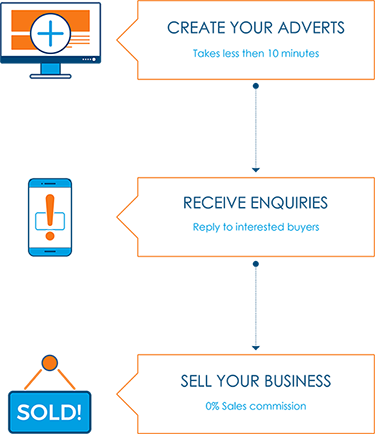
Putting your business on the market, but unsure about the merits of a confidential sale? It’s worth weighing up the benefits and drawbacks – it might decrease the risk, but increase the time commitment on your end to the process. Or perhaps you’re concerned about how it will affect the price – in any case, we’re here to help.
First off, a quick definition. A confidential sale keeps the identity of your business as private as possible. Online listings are usually kept brief, and buyers are often required to sign a non-disclosure (or NDA) before they receive the full sales details.
The Pros:
As every entrepreneur knows, information is the most valuable currency in the marketplace. Putting your business up for sale openly means anyone can find out pivotal details about your organisation – including prying competitors. A confidential sale reduces the possibility of unwanted parties finding out that your business is on the market. You’ll have more control over who receives your business’s details, to filter out individuals you’d prefer didn’t know your business was for sale.
And then there’s the information that your business is up for sale in itself. If employees find out, they might become anxious about the future of their role, impacting staff wellbeing and productivity. Clients or customers might waver in their loyalty at the prospect of new ownership. An NDA offers protection from gossip. Once signed, if a potential buyer reveals anything to the general public, you would have the legal right to sue them. This prevents any unwanted and potentially unwarranted concern from employees or customers.
The cons:
General rule of thumb – sales behind closed doors won’t attract as much interest. Blind ads or vague listings give potential buyers much less to work with, when they are looking for opportunities to match their criteria. Confidential sales add a lot of steps between initial enquiry and the buyer receiving your full details. This drags the process out, and might even cause interested parties to walk away.
You may also spend extra time filtering out dead-end enquiries. As they’ve got less information to work with, when you do get interested parties they may realise your business is less suitable for their needs once they find out more. This isn’t a problem with a standard sale, where all the information is available up front, making those who do approach you better qualified leads.
Ultimately, whether a confidential sale is right for you depends on your circumstances. Have a think about these pros and cons and how the potential sale will affect those involved in your business, and how much time you have to dedicate to the process. Interested in getting some advice? Contact an expert broker, like those at Intelligence Business Transfer.
Intelligent Business Transfer have been helping people to sell their business for over a decade. They offer a free of charge business consultation, where you would discuss how much your business is worth, who might be interested in purchasing and if a confidential sale might be beneficial. Click here to arrange a call back or give them a ring on 0800 612 7718.


